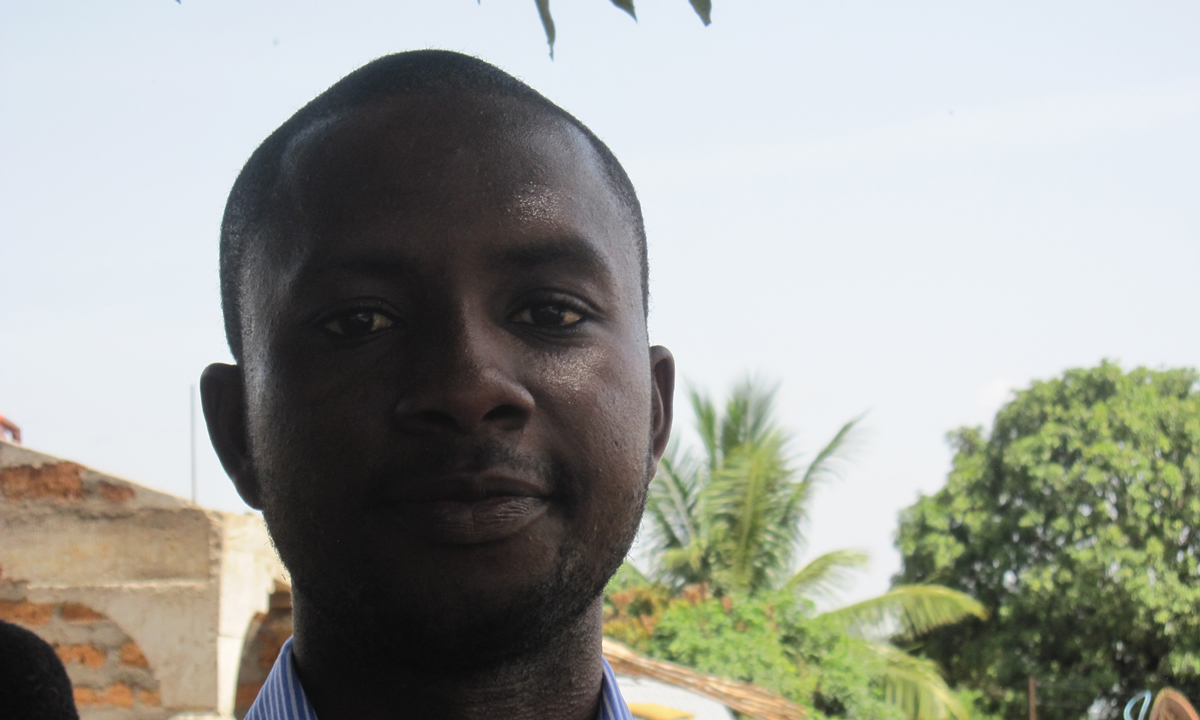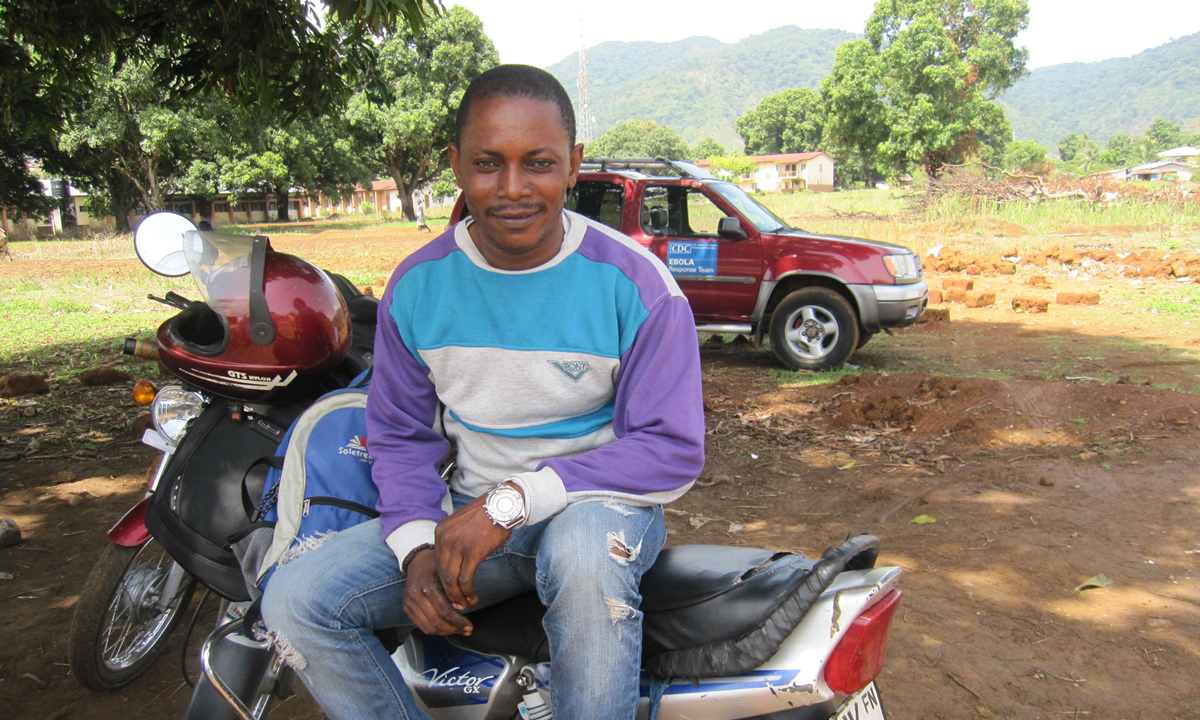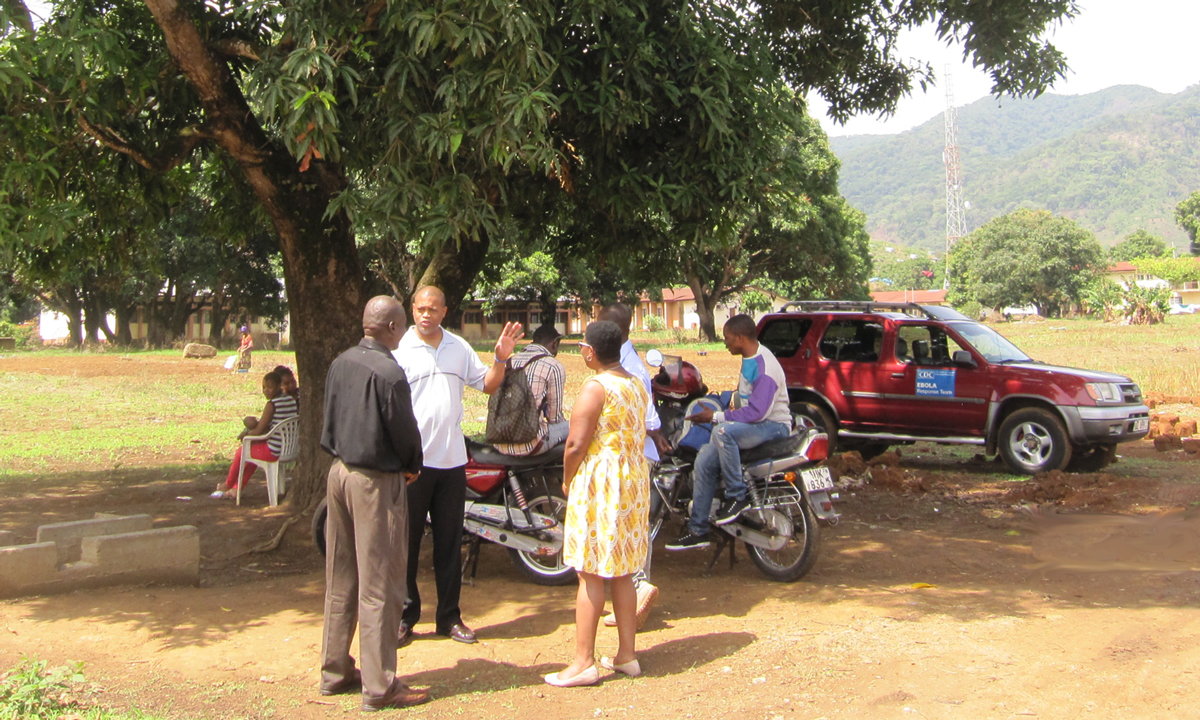CDC-Trained Surveillance Officers will Take Ebola Experience into the Future

Abus Kakgra Sesay, Western Rural Area Surveillance Officer, Sierra Leone.
The efforts of the responders to Ebola will leave a legacy that goes beyond getting to and remaining at zero cases. In the western area of Sierra Leone, Mohammed Jollah, Tomeh Bangura, Abu Bakgra Sesay, worked as district surveillance officers (DSO), frontline responders responsible for tracking down reports of sickness and determining if the person was infected with Ebola. With salaries funded by the CDC Foundation, all three men were part of the Western area surge launched in December 2014 and designed to blunt an Ebola “hotspot” in an area near the capital of Freetown. They say that the lessons and experiences they gained responding to Ebola will carry through to their medical school careers and into the future of health care in Sierra Leone.
Jollah, Bangura and Sesay, all medical students in Sierra Leone, were among 180 district surveillance officers trained by the U.S. Centers for Disease Control and Prevention, the Sierra Leone Ministry of Health and Sanitation, and World Health Organization. Their job was to respond to calls placed to the 117 Ebola hotline and determine if the report met the criteria for Ebola.
It was not easy.
Often, the calls they received were thin on details, which meant the surveillance officers had to piece together information to determine important details like address. Then, they had to travel to the address and convince the family to let them interview the person suspected of being sick.
Because stigma is often associated with Ebola, people were hesitant to identify family members that might be infected. Getting past this fear required a delicate approach, one that was persistent yet compassionate and rooted in the surveillance officers’ understanding of local culture and sensitivities. And, this had to happen at a distance.

Gibriilla Bangura, driver for district surveillance officers in Western Rural Area, Sierra Leone.
“We were trained to always keep a distance of about two meters from the person we were checking,” Bangura said. “We would have a printed form with questions.” If the answers suggested Ebola, an ambulance would be called.
They’d repeat the process at the next location because there were always other people with possible cases waiting. From January through February of 2015, when Ebola was still rampant where the three worked in the Western portion of Sierra Leone, they responded to reports of 170 possible cases.
It was exhausting. “I got up about 4:30 each morning and did not finish until 7 or 8 each night,” Jollah said.
For Jollah, the hardship didn’t end there. “We were responding every day and pretty soon my landlord found out what I was doing. He told me I had to move. I was able to find a new place only by hiding my identity. I couldn’t tell them I was an Ebola worker.”

Tomeh Bangura, Leader for one of the teams of district surveillance officers (DSOs) (white shirt), talks to CDC deployees to Sierra Leone under the Mango Tree Office in Hastings, Western Rural Area near Freetown. The Mango Tree was a landmark and popular meeting place; it also provided shade for DSOs while waiting for calls that would send them to investigate possible Ebola cases.
Bangura also felt the weight of Ebola, “When I got home each night, I would use chlorine on my boots and gloves; I’d spray my clothes then wash them. Then I’d take a shower. I wouldn’t allow my wife or kids to even touch me until all of that was done. I was afraid. You never knew; perhaps I was infected too.”
For Sesay, the most difficult moment was when he for the first time met a person who was Ebola positive.
“I had been hearing for some time ‘Ebola, Ebola, Ebola’. But that first case was something I’ll never forget. We met a guy who was crying and who was bleeding from his mouth and his nose. I was very frightened when I saw him,” he said.
But they pressed on, working 14 to 16 hours a day and providing data and other information that was crucial to the larger effort to end the epidemic.
They stayed cautious and ever vigilant as the outbreak began to subside. Following their training, the surveillance officers always entered a house in a group. This allowed one member of the team to monitor the situation to ensure safety while the others asked questions of the person suspected of having the disease.
With the epidemic subsiding, Jollah, Bangura, and Sesay were able to return to medical school in June 2015 taking with them the invaluable experience and lessons that they learned as DSOs.
“As a surveillance officer, I’ve learned a lot about Ebola and IPC (infection prevention and control),” Jollah said.
As they continue their education, the three will be able to put their training into practice to help prevent the next disease outbreak from turning into an epidemic like Ebola.